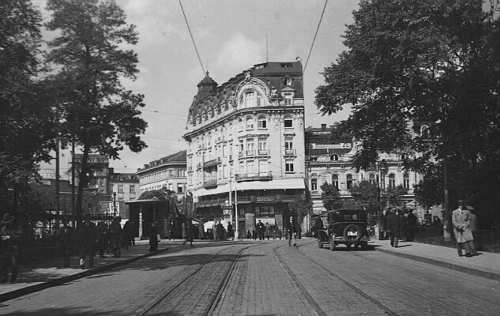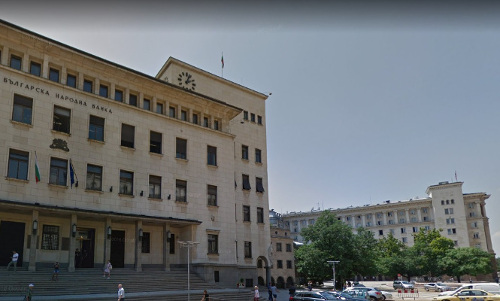Atanas Burov Sq.

In 1911, on what was then Alexander I Sq. (now Atanas Burov) and the extant Znepole Str., officially opened the Union Palace Hotel. The project for the impressive Secession building belongs to Nikola Yurukov, who had studied at Vienna and was co-founder of the capital’s foremost architectural firm Fingov – Nichev – Yurukov – designers of architectural symbols such as Sofia Bank, Sofia Chamber of Commerce and Industry, the Fenix Palace, and many more.
The 6-storey building of the hotel had a large restaurant on the second floor, with a lounge orchestra and top tier cuisine. It was here where the writer Ivan Vazov celebrated his 50th anniversary with a 1000 LEVA cover banquet, at which, according to the recollections of his contemporary, the poet Kiril Hristov, ‘Champaign flowed like rivers’, and some of the items on the menu were named after characters from Vazov.

The hotel and the restaurant quickly became a meeting ground for the foreign diplomats and their guests – Bulgarian statesmen, bankers and public figures, and over three decades, its spacious halls were the habitual backdrop of in-depth conversations on finance and policy.
The Second World War bombing strikes of the Allied aviation left a deep scar on the capital’s downtown; the area around Alexander I Square was badly hit. Among the severely damaged buildings is the Union Palace – its dome collapsed, the rich facade decorations were destroyed by the blasts, and the lush interiors were reduced to ashes. Nevertheless, the structure persisted until the mid-1950s, when it was demolished to clear the ground for the monumental building of the Ministry of Electrification, which today houses the Presidency and the Ministry of Education and Science.